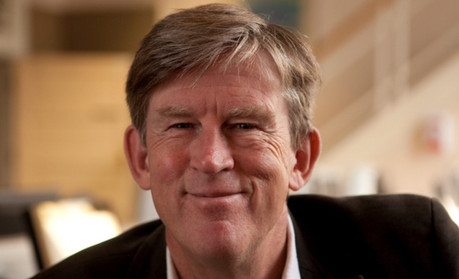
Professor Ian Hargreaves
The National Union of Journalists is "disappointed" at the government's response to the Hargreaves' review of copyright law, claiming a proposed rights clearing house would "invite many kinds of abuses".
The government yesterday announced that it accepted all 10 recommendations made by former editor of the Independent Professor Ian Hargreaves in his independent review of intellectual property.
This included plans for a digital copyright exchange in the UK, which would aim to address copyright content clearance by enabling licences to be bought and sold through a common platform.
The NUJ raised concerns when the idea was originally proposed and today (4 August) warned that this form of a "one-click shop" would invite abuse.
"The NUJ Code of Conduct insists that journalists maintain their professional independence and therefore forbids them endorsing products," the union said.
"Furthermore journalists should have the right in law to check who is licensing their work and to object to uses contrary to their 'honour or reputation'(as the relevant international law puts it).
"It is not right to allow a third party, such as an advertising agency or political organisation, to buy an apparent endorsement by a journalist as a result of an anonymous exchange."
The union did, however, welcome the government's backing of a proposal to establish a copyright small claims track in the Patents County Court for cases involving £5,000 or less.
It also called on the government to introduce new rights for creators in UK copyright law, claiming that under current law creators do not have an enforceable right to be identified or to defend the integrity of their work.
"This new measure could be introduced alongside legislation that permits the use of works whose creators cannot be identified.
"The NUJ wants all creators to have the right to be identified with their work and to ignore this issue would be to guarantee that there was a growing number of 'orphan works' and create a system that promotes abuse."
The government will now consult on the detail of how to proceed in the coming months before setting out its plans in a White Paper in spring next year.
The government also confirmed that it would not be introducing site blocking of websites which infringe copyright, following advice from Ofcom.
Free daily newsletter
If you like our news and feature articles, you can sign up to receive our free daily (Mon-Fri) email newsletter (mobile friendly).
Related articles
- Three steps to protect newsrooms from press freedom attacks
- What journalists can do to prevent and fight SLAPPs
- Copyright still applies on social media: seek consent before helping yourself to content
- Tip: Ten legal risks journalists need to be aware of
- Tool for journalists: Representation Matters, for royalty-free images that promote diversity









